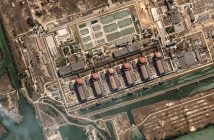- A high court judgement last week set aside the National Energy Regulator of South Africa’s (NERSA’s) decisions on the regulatory clearing account (RCA) submissions for the financial years 2015 to 2017.
- In a surprise move, NERSA withdrew its opposition after confirming that it failed to comply with the procedural requirements when making four of its decisions regarding Eskom’s electricity tariffs.
- This judgement means that Eskom will now be in a position to recover prudent and efficient costs that were incurred in these financial years.
During a virtual court hearing on last Wednesday, Eskom asked for tariffs to be increased by 15% next year, instead of the 5.22% that Nersa had previously approved. The RCA mechanism allows Eskom the opportunity to achieve the initial revenue that was allowed during the revenue decision and to adjust the allowed revenue due to changes in costs that are subject to re-measurement as outlined in the Multi Year Price Determination (MYPD) Methodology published by NERSA. The changes in costs are generally due to two key reasons:
- A significant change in the environment
- The nature of the original revenue decision
The review applications are premised on the fact that the applicable legislative framework i.e. the MYPD methodology has not been correctly implemented by NERSA. In addition, the principles applied to certain items in previous decisions were not maintained, and no valid reasons were provided for the departures made from these previous precedents.
This was the instance where Eskom had made an application for R67 billion for the three RCA balances. NERSA had determined the balance to be R32 billion. NERSA had originally opposed the review application, but has in fact just recently withdrew its opposition to the review application. The judgement sets aside the NERSA decision and found the failure to process the decisions within a reasonable time was inconsistent with the Constitution. In addition it found that there were fundamental factual errors as well as that the decisions made were not rational. The Judgement accepts that Eskom had put forward a proper case for relief in those key areas where NERSA did not implement its methodology and precedents. The areas specifically dealt with are the treatment of revenue variances, coal costs, Independent Power Producer Costs and the capital expenditure clearing account.
Eskom awaits the judgement of the misappropriation of the equity injections of R69bn in the NERSA revenue decisions for the FY 2020 to 2022. In this matter, NERSA again acknowledged that it incorrectly deducted the equity injections provided by the Government. Thus the merits of the case were not argued, only the remedy was considered at the hearing held on 24 June 2020.
With regards to the prior judgement made on the 10th March 2020 for the revenue decision for the financial year 2019 that was also reviewed by the Eskom Board, a supplementary tariff application will need to be made.
In a statement, Eskom chastised NERSA “it is hoped that NERSA will undertake its mandate by ensuring that Eskom is allowed to recover its prudent and efficient costs. The outcomes of the judgements will aid in ensuring that NERSA corrects the current poor decisions and in future applies and abides by the rules when making determinations on Eskom’s Revenue Applications (MYPD and RCA). This would go a long way towards restoring credibility of the regulatory environment and will also aid in ensuring the consistency and predictability of regulatory decisions that is sought by many stakeholders, e.g. consumers, investors, rating agencies etc”.
Author: Bryan Groenendaal











